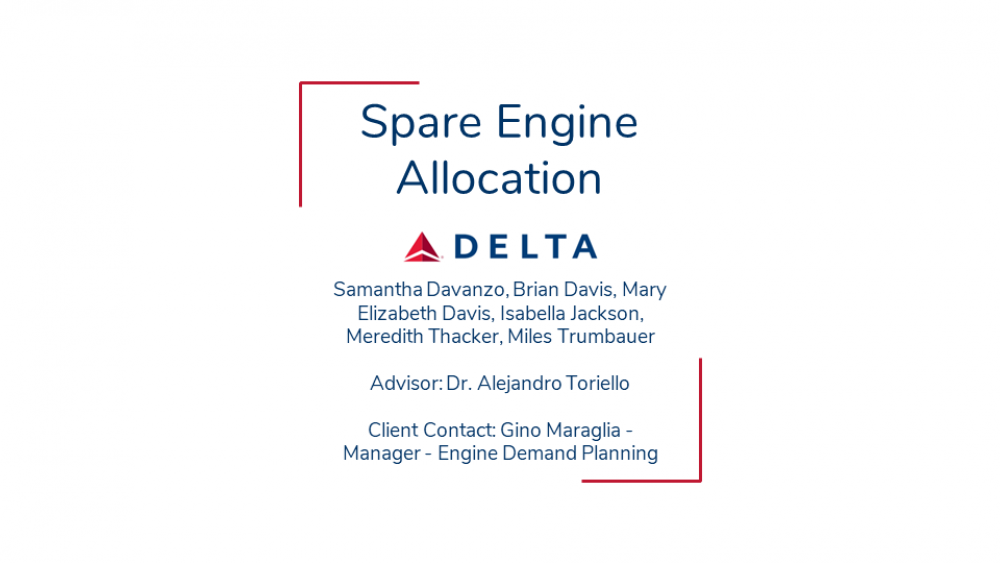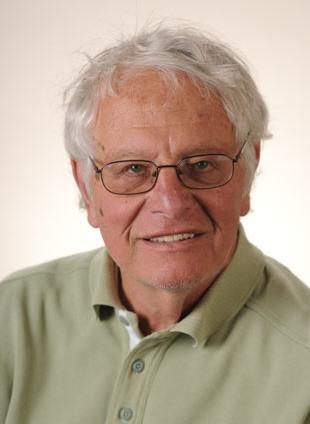Client Context
Delta Air Lines is an industry-leading, globally operating airline servicing over 300 destinations with a fleet of approximately 900 aircraft. Delta’s Engine Demand Planning team (EDP), which falls under Delta TechOps, is responsible for planning engine removals, assigning spare engines to seven designated hubs, and setting up the logistics of the removals and repairs of these engines. A division of Delta Air Lines, Delta TechOps is a full-service aviation maintenance, repair, and overhaul provider with more than 11,000 professionals system-wide. The EDP team has identified an opportunity to significantly decrease the cost associated with placement of spare engines at hubs through a redesign of their current system.
Project Objective
The objective of this project is to assist Delta’s EDP team with improving the allocation of spare engines across the contiguous United States. There are approximately one to five spare engines for each of Delta’s 19 engine subtypes placed at hubs each month. Determining the placement of every fleet’s spares takes up to 12 hours to complete. Engines are transported to and stored at these locations to later be used in the case of an engine removal. When an aircraft engine fails, it is taken off the airplane and replaced with the closest working spare. The removed engine is routed back to one of two maintenance stations, either Atlanta or Minneapolis, to be processed. If an engine removal occurs, but there is no spare engine available to replace it and no aircraft of similar configuration to take its place, then Delta incurs an Aircraft Out of Service (AOS). AOS costs are incurred because of flight cancellations and a decrease in customer satisfaction.
Design Strategy
To assist Delta in decreasing both transportation and AOS costs incurred throughout the year, both a static placement using basic optimization techniques and a dynamic placement using a Markov Decision Process(MDP) was created. The static placement is easier to implement since it can be used as a default for any time period. The MDP requires monthly inputs because it considers both the current placement of spare engines and future data. The spare engine placement it provides is therefore more accurate, providing more value to Delta. The solution outputs a monthly configuration recommendation associated with the minimal cost of all possible options. Delta’s EDP team can use the model to make data-informed, cost-driven decisions with the added benefit of reducing required labor hours. The output of the new model compared against past data quantifies the cost savings.
Deliverables
The final deliverables are two Python applications and a turnover document to provide a smooth transition of information. The Static Placement Generator determines a static placement of spare engines for each fleet based on only past removal data. It generates the best placement of spare engines for each subtype for any possible state that can occur. This static placement can be used as a default for events in which future flight data changes or is unavailable. The Dynamic Placement Generator determines a dynamic placement of spare engines for each subtype based on past removal data, future flight data, and the current state of the system. This can replace the EDP team’s current Excel-based model by determining optimal engine placement for the upcoming month. The turnover document provides instructions on how to properly download the applications and run them when necessary. Directions on how to gather new data to re-run regression analysis and update the placement generators will also be provided.


